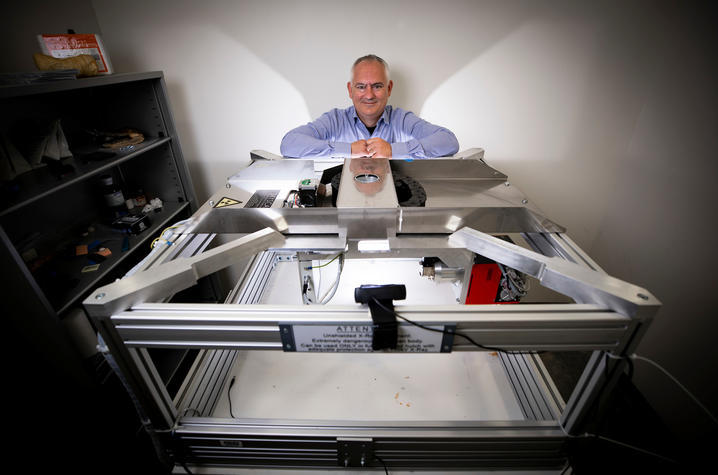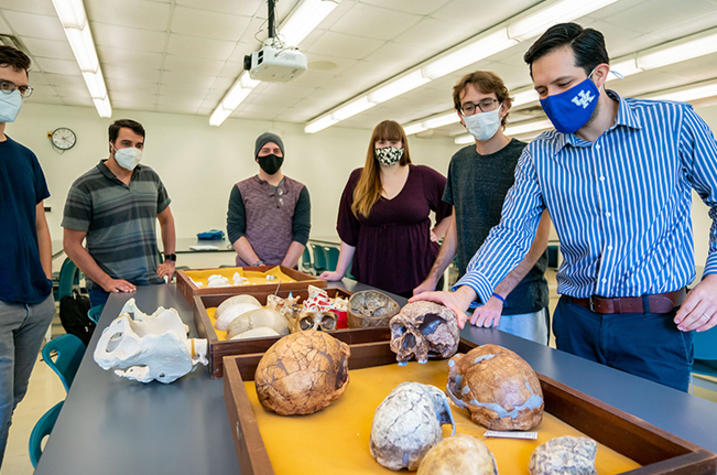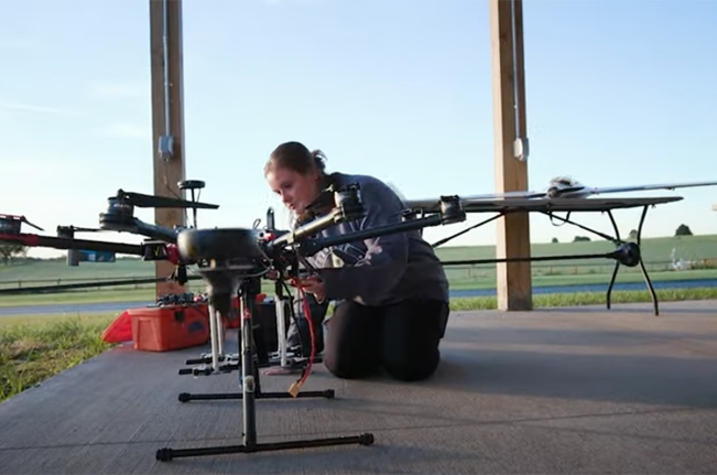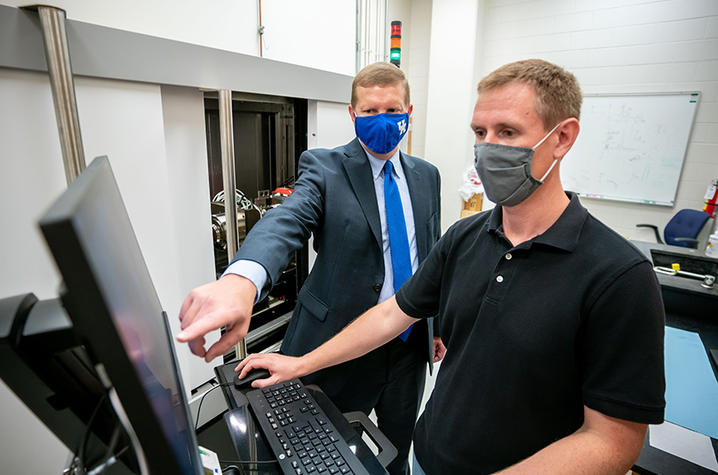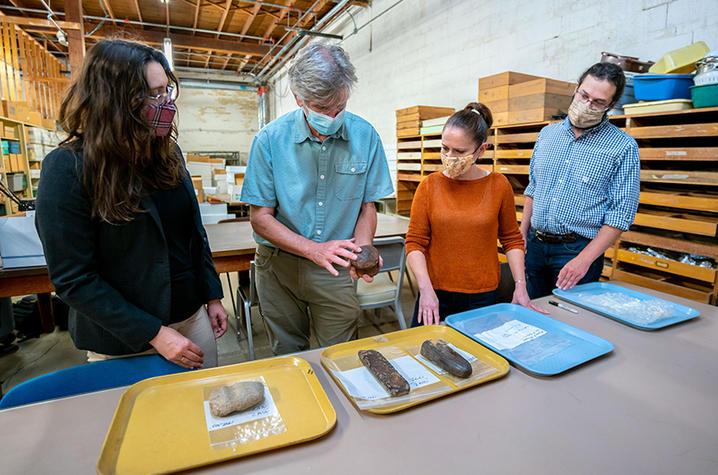‘Research Made Possible’ Podcast: $14 Million NSF Grant for UK EduceLab
LEXINGTON, Ky. (April 19, 2022) — It’s the signature on a bourbon barrel. It's the ancient footprints in Mammoth Cave. Heritage science is all around us and has deep roots in the Commonwealth. Kentucky’s story begins in prehistoric times, when mammoths roamed the Ohio River Valley at Big Bone Lick.
In November 2021, the University of Kentucky announced a new $14 million mid-scale infrastructure grant from the National Science Foundation, that will allow UK to tell that story in new, groundbreaking ways through the lens of heritage science.
For more than 20 years, Brent Seales, UK Alumni Professor in the Department of Computer Science, has been working to create and use high-tech, non-invasive tools to rescue hidden texts and restore them to humanity. Dubbed “the man who can read the unreadable,” he has garnered international recognition for his “virtual unwrapping” work to read damaged ancient artifacts — such as the Dead Sea Scrolls and Herculaneum papyrus rolls — without ever physically opening them.
Now, expanding on his research, Seales is positioning UK as a regional leader in heritage science. He gathered a team of experts from the College of Engineering and the College of Arts and Sciences to build EduceLab. This collaborative user facility will focus on developing innovative artificial intelligence (AI) solutions for the unique challenges presented by cultural heritage objects.
“The word educe means ‘to bring out from data’ or ‘to develop something that is latent but not on its own explicit.’ That’s what we’ve been doing with our virtual unwrapping work. And that context has created an opportunity to expand the very focused question of, ‘Can we read what’s inside a scroll?’ to a broader question of, ‘What heritage science questions can we answer right here in Kentucky?’" Seales explained. “My goal is to rally some of the best researchers here around that theme and build a world-class laboratory that allows us to pose and then answer some of those questions.”
In this two-part “Research Made Possible” podcast, we take a deeper dive into EduceLab. In part 1, we meet the College of Engineering faculty (Brent Seales, Suzanne Smith, Corey Baker and John Balk), who share the impact of NSF funding, what this new equipment will allow researchers to explore and how they will partner with the community to answer new questions. In part 2, we meet the anthropologists (Hugo Reyes-Centeno and George Crothers) in the College of Arts and Sciences, learn about the Webb Museum where EduceLab is based, and find out how this grant will impact their research, UK student learning and career opportunities.
- “Research Made Possible” Podcast | Part 1: SoundCloud | Part 2: SoundCloud | transcript
- Read more and see video.
As the state’s flagship, land-grant institution, the University of Kentucky exists to advance the Commonwealth. We do that by preparing the next generation of leaders — placing students at the heart of everything we do — and transforming the lives of Kentuckians through education, research and creative work, service and health care. We pride ourselves on being a catalyst for breakthroughs and a force for healing, a place where ingenuity unfolds. It's all made possible by our people — visionaries, disruptors and pioneers — who make up 200 academic programs, a $476.5 million research and development enterprise and a world-class medical center, all on one campus.
In 2022, UK was ranked by Forbes as one of the “Best Employers for New Grads” and named a “Diversity Champion” by INSIGHT into Diversity, a testament to our commitment to advance Kentucky and create a community of belonging for everyone. While our mission looks different in many ways than it did in 1865, the vision of service to our Commonwealth and the world remains the same. We are the University for Kentucky.





